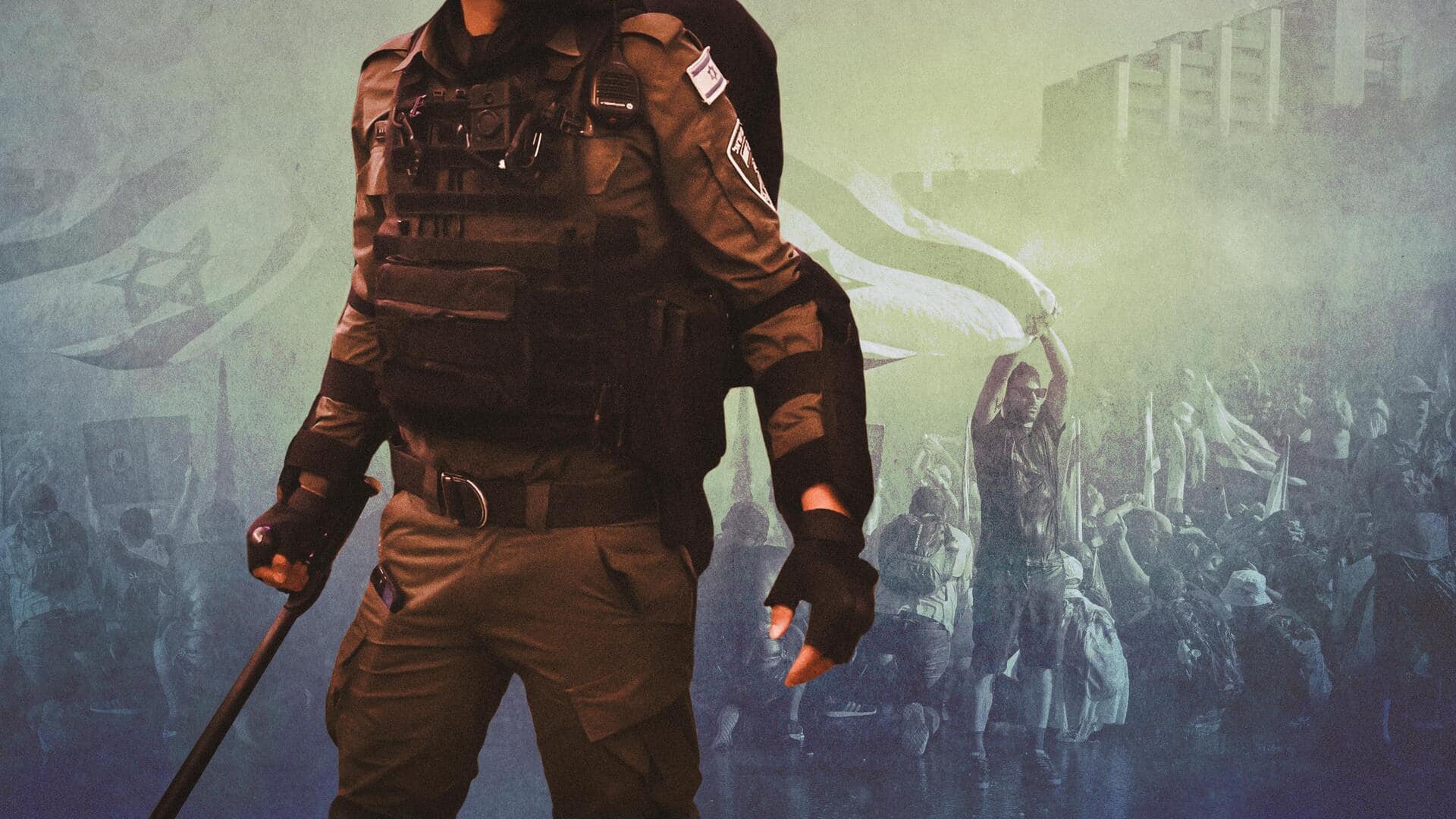
Israel passes controversial judicial reform law, protesters clash with police
What's the story
Israel's parliament, called the Knesset, passed a controversial law on Monday curbing the Supreme Court's power to overturn government actions it deemed unreasonable.
The police clashed with thousands of protesters, who have been agitating against the reforms and demanding Prime Minister Benjamin Netanyahu's resignation for months.
In Jerusalem and Tel Aviv, the police used water cannons as protesters tried to block highways.
Context
Why does this story matter?
The far-right ultra-Orthodox government led by Netanyahu reportedly wants to overhaul the country's justice system.
The government argues that the reforms are necessary to create a balance of power as courts intervene in political decisions, while protesters claim the changes will push Israel toward theocracy.
Notably, Israel has no written constitution, and the Supreme Court acts as the only guardrail to check the legislature.
Knesset
Opposition boycotted final vote
After seven months of debate, the government did away with the "reasonableness" clause, which allowed the Supreme Court to overrule the government's decisions.
The final vote was 64-0, as the opposition lawmakers boycotted the vote.
The government also plans to allow a simple majority of 61 in the 120-seat Knesset, which could help Netanyahu evade prosecution in the corruption case against him.
Pushback
10,000 IDF reservists to not serve in protest
Meanwhile, around 10,000 Israel Defense Forces (IDF) reservists declared that they would suspend their voluntary reserve duty to protest the government's judicial overhaul.
Israel's centrist opposition leader Yair Lapid and a political watchdog group plan to appeal to the Supreme Court to quash the law.
The Histadrut trade union confederation, Israel's largest voluntary organization formed in 1920, has also warned of a general strike.
Police
Driver tries to run over protesters, suspect held
The police arrested at least 22 people on Monday, including a suspect who allegedly plowed his car into a crowd of pro-democracy protesters, injuring three people, the Israeli newspaper Haaretz reported.
Reportedly, Netanyahu refused to meet with IDF Chief of Staff Lieutenant General Herzl Halevi for a security briefing ahead of the judicial reform vote on Monday.
Government
Netanyahu returned to power after 5 elections
To note, Israel has seen five elections since 2019, in which no stable government could be formed.
In November 2022, Netanyahu's Likud, in coalition with extremist and religious parties, won a clear majority, allegedly forming the most right-wing administration ever in Israel's history.
He is the first prime minister to be charged with a crime, having been indicted on corruption charges in November 2019.
Agenda
Know about ruling coalition's agenda
The coalition's agenda includes complete annexation of the occupied West Bank, relaxing rules of engagement for the Israeli police and soldiers, and a rollback of legislation protecting women, religious minorities, and the LGBTQ+ community.
The far-right sees the Supreme Court as biased against the settler movement and Israel's ultra-Orthodox community.
The current agitation is reportedly one of the largest protest movements in Israeli history.